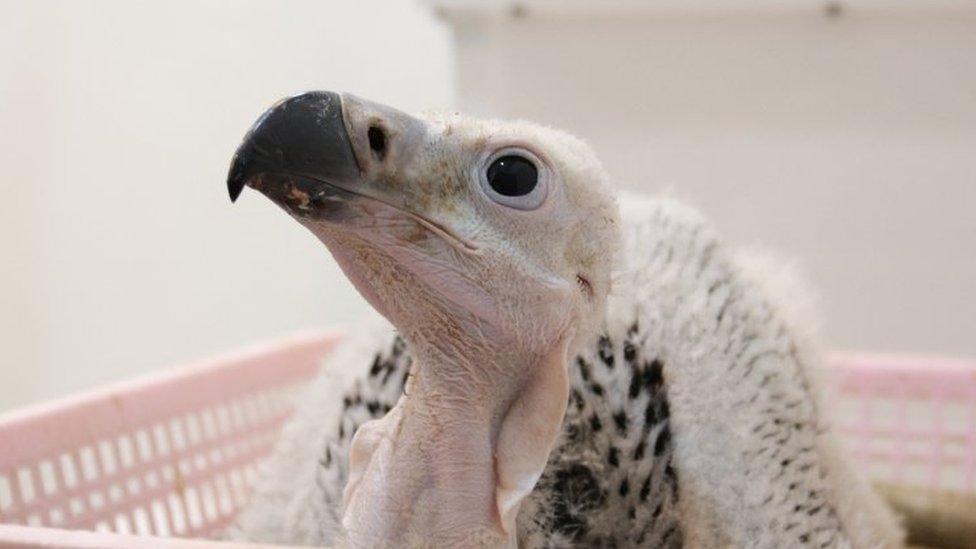Bernard the arthritic vulture has dodgy knee fixed
Stem cells: Arthritic vulture reunited with partner after jab
- Published
An arthritic 28-year-old vulture has been given a stem-cell treatment at a vet in what conservationists say is a "turning point for wildlife medicine".
Bernard, a Eurasian black vulture, underwent a leg injection in a procedure that researchers claim is a UK first.
It means Bernard can go back to courting and nest building with his vulture partner Twinkle, a pair that produced the first UK-born Eurasian black chick.
The Horstmann Vulture Trust runs one of the world's biggest sanctuaries in aviaries near Llandeilo, Carmarthenshire, and said improving the health of endangered species in captivity could be the key to the survival of some.
Egyptian vulture seen in UK for first time in 150 years
- Published16 June 2021
Baby vulture is 'key step forward' for species
- Published24 April 2024
Endangered vulture chick at Longleat 'thriving'
- Published12 May 2024
"Treating any disease and prolonging the life of the animals is important because we can produce more offspring that we can return to the wild to support threatened populations," said Adam Bloch from the trust.
He said vultures like Bernard can live up to 50 years in captivity.
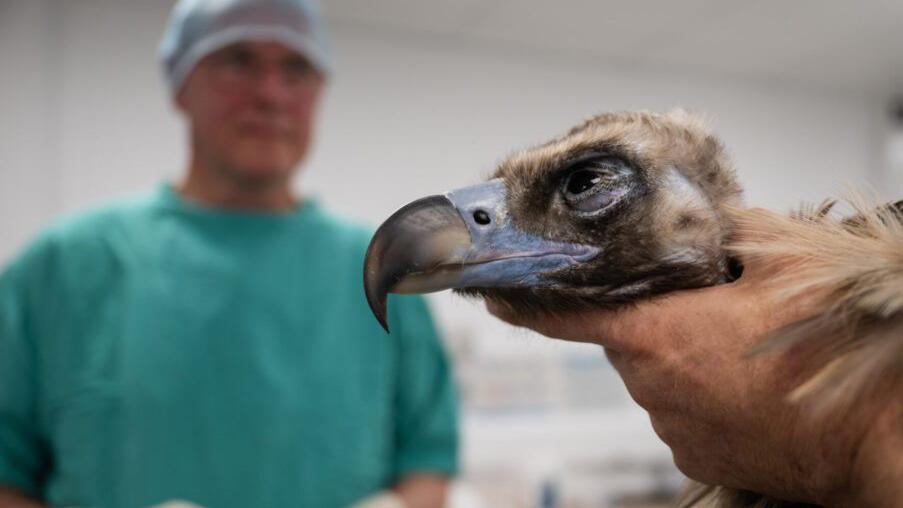
Bernard the vulture getting a stem cell treatment for a gammy leg
Males remaining fertile all their lives, so the hope is that he and Twinkle will produce young for many years to come.
But Bernard developed bad arthritis in his stifle, the bird equivalent of a knee.
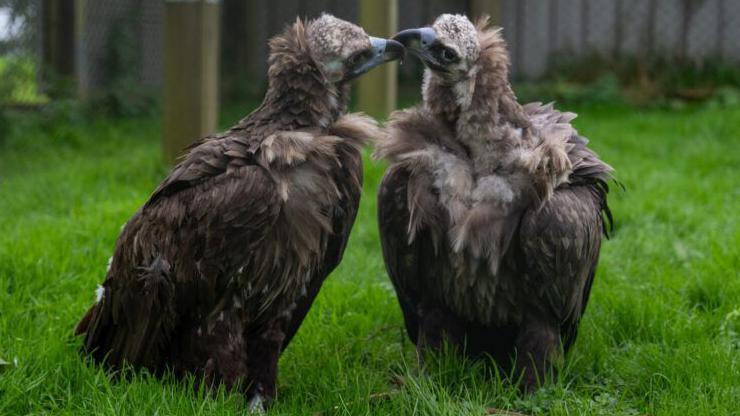
Bernard and his partner, Twinkle, spend almost all their time together
"It was slowing down his movement," said Holly Cale, who hand-reared Bernard and has been with him for 10 years.
She first noticed he was becoming more careful going from perch to perch. He then started to show a limp when moving on the ground.
It came after years of working to bring Bernard and Twinkle together to breed.
"They are such an amazing couple and the dedication they have to each other and to make the nest together," she said.
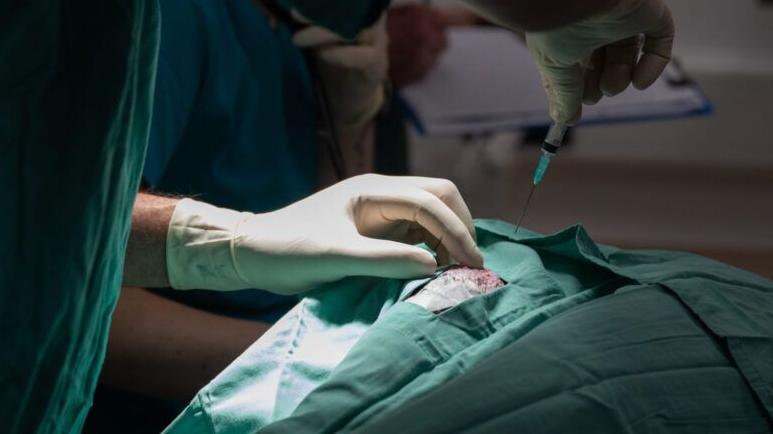
The stem cell injection procedure at a vets in Carmarthen
"We wanted to find the best chance of them being together for a long time and to give Bernard the most comfortable life we can give him," she added.
A team cultured stem cells from Bernard's tissues over four weeks, then injected them back into his leg at Seren Vets in Carmarthen.
"It’s exciting to think that this could represent the future of care for large birds," said Dr Kevin Jones, the vet who directed the treatment.
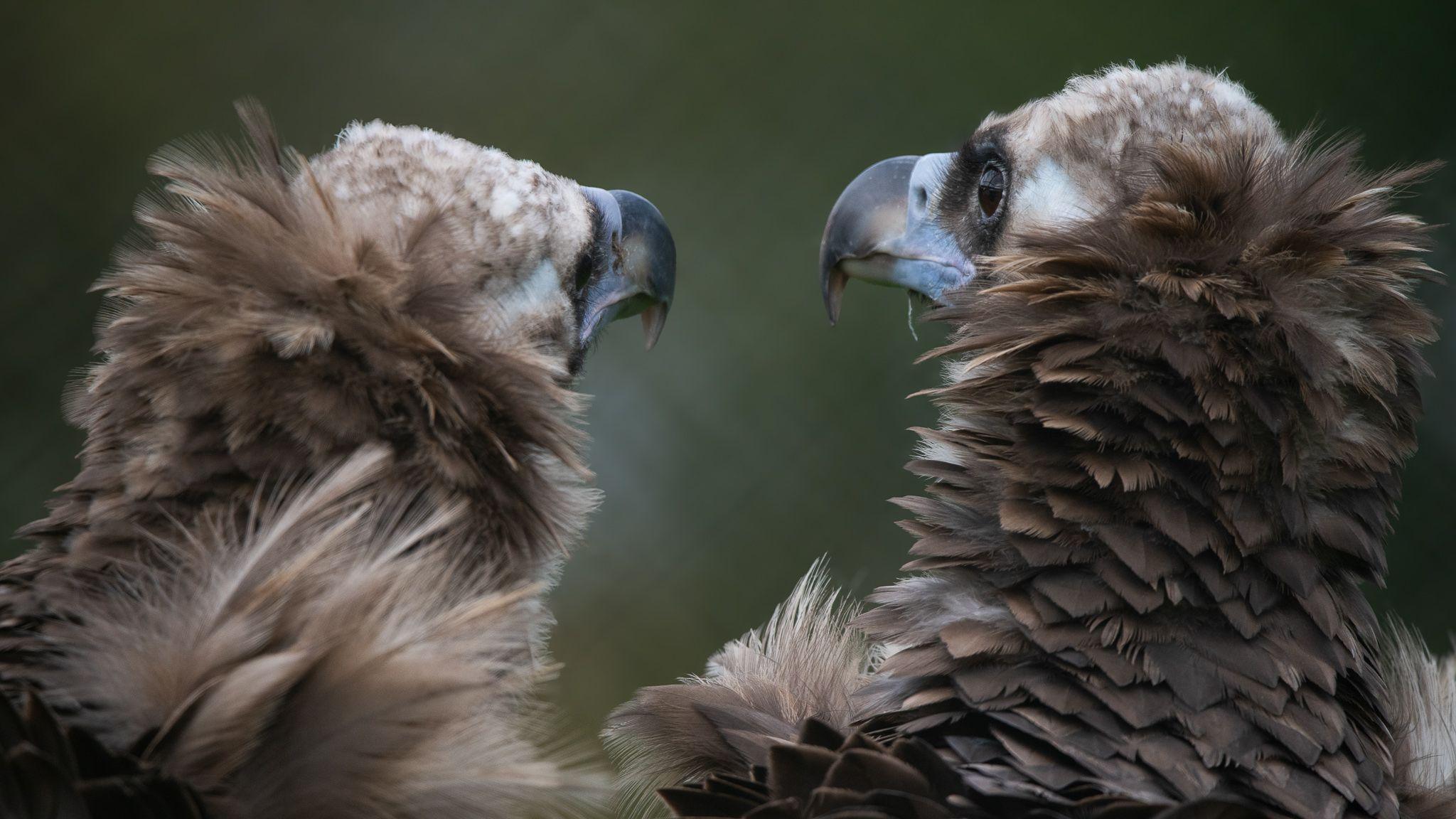
Bernard is back to his old self since the treatment, courting with Twinkle
"He's much faster and seems more confident in his steps," Ms Cale said of Bernard a few weeks after the treatment.
Crucially, he and Twinkle have begun building a new nest.
"He's more confident, faster on his feet, and enthusiastic in nest building," she said. "I don't think Twinkle has noticed a difference.
"He is always so attentive to her and they spend a lot time together... they have beautiful courting where they bring their beaks together."
Dr Neil Forbes, an avian veterinary consultant to the trust, said the new treatment was a "significant step forward in veterinary care for vultures".
"These birds play an irreplaceable role in ecosystems by removing carrion and pathogens, and any step we can take to improve their health and longevity is a victory for wildlife conservation."
Related topics
- Published29 October 2021
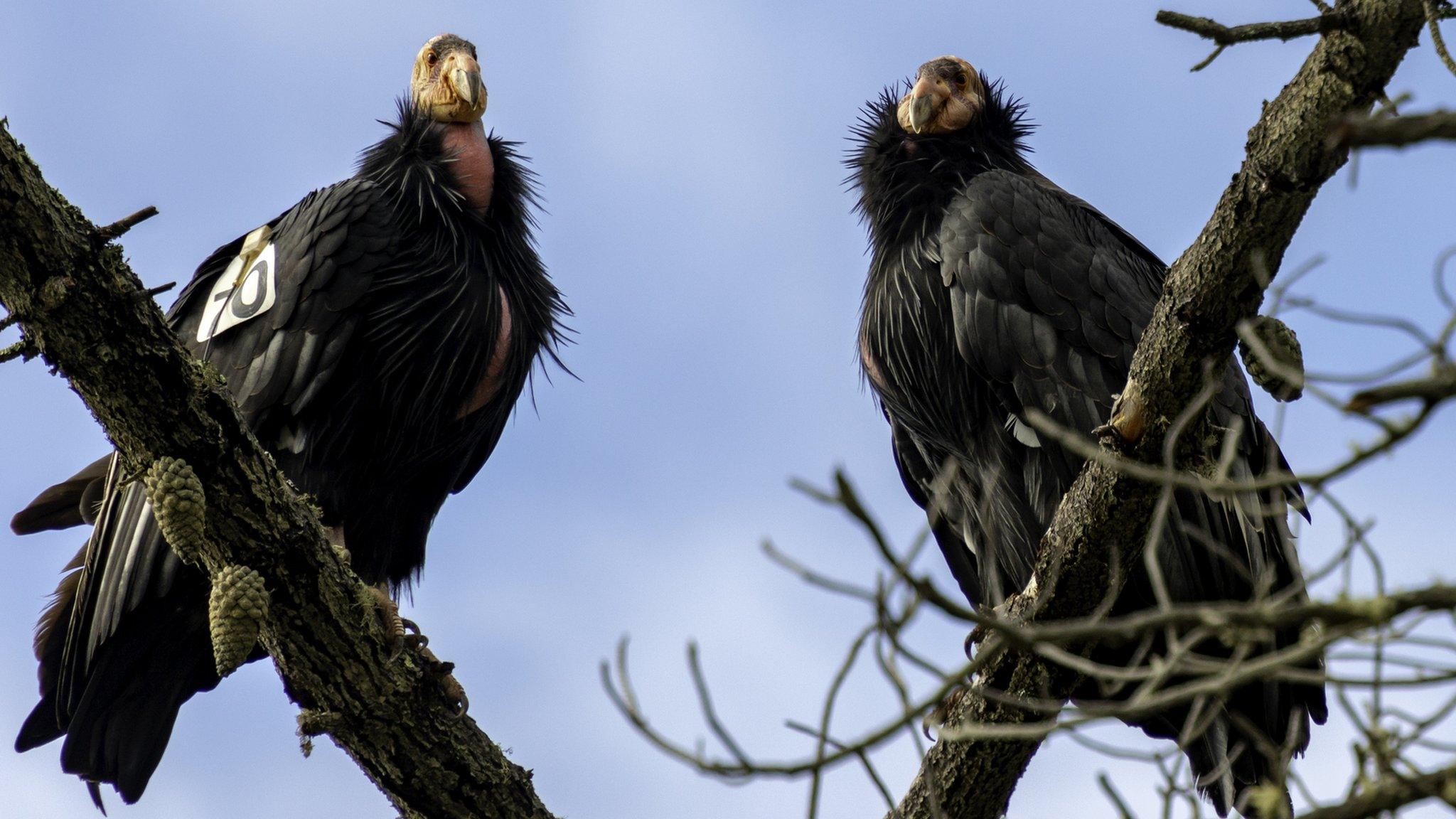
- Published25 July 2024
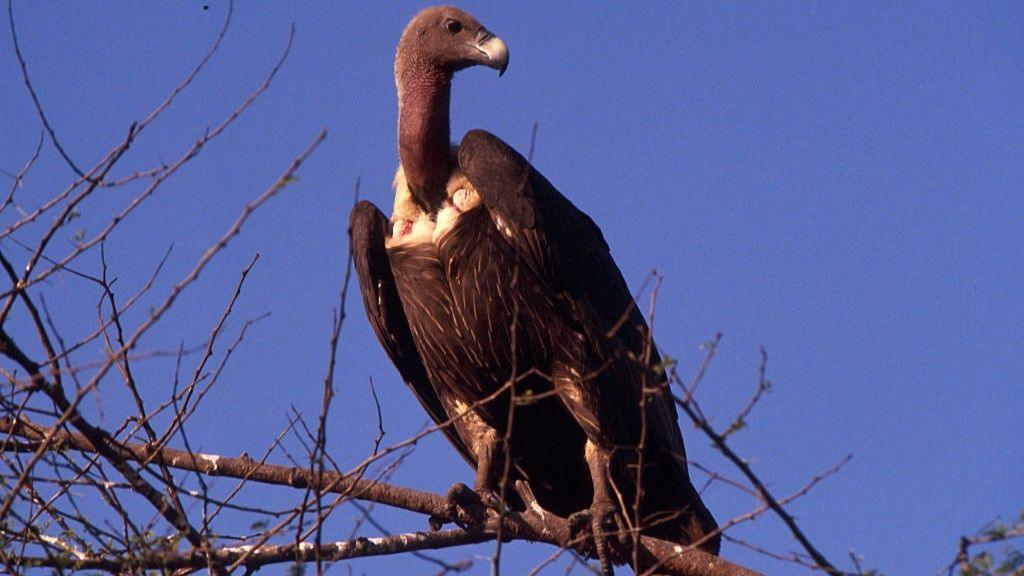
- Published17 May 2016
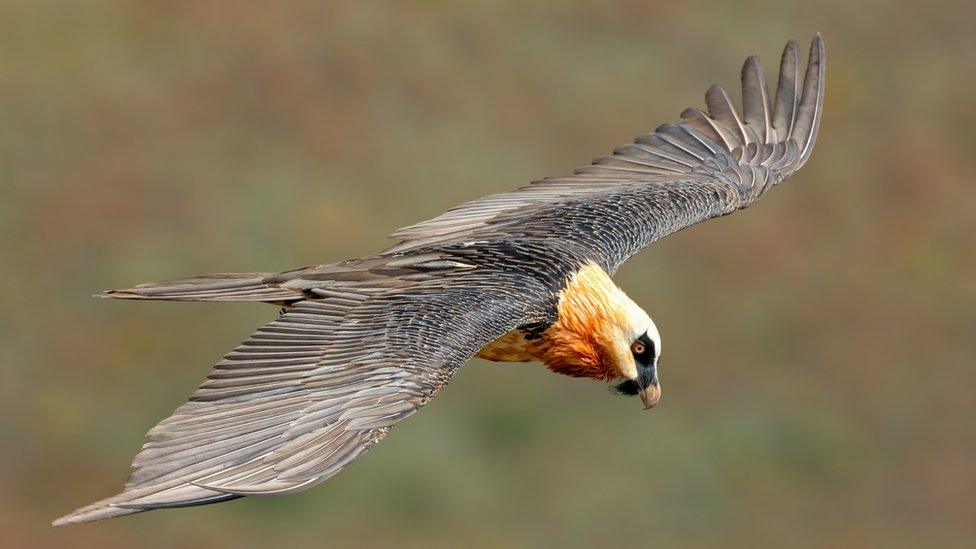
- Published29 April 2023
